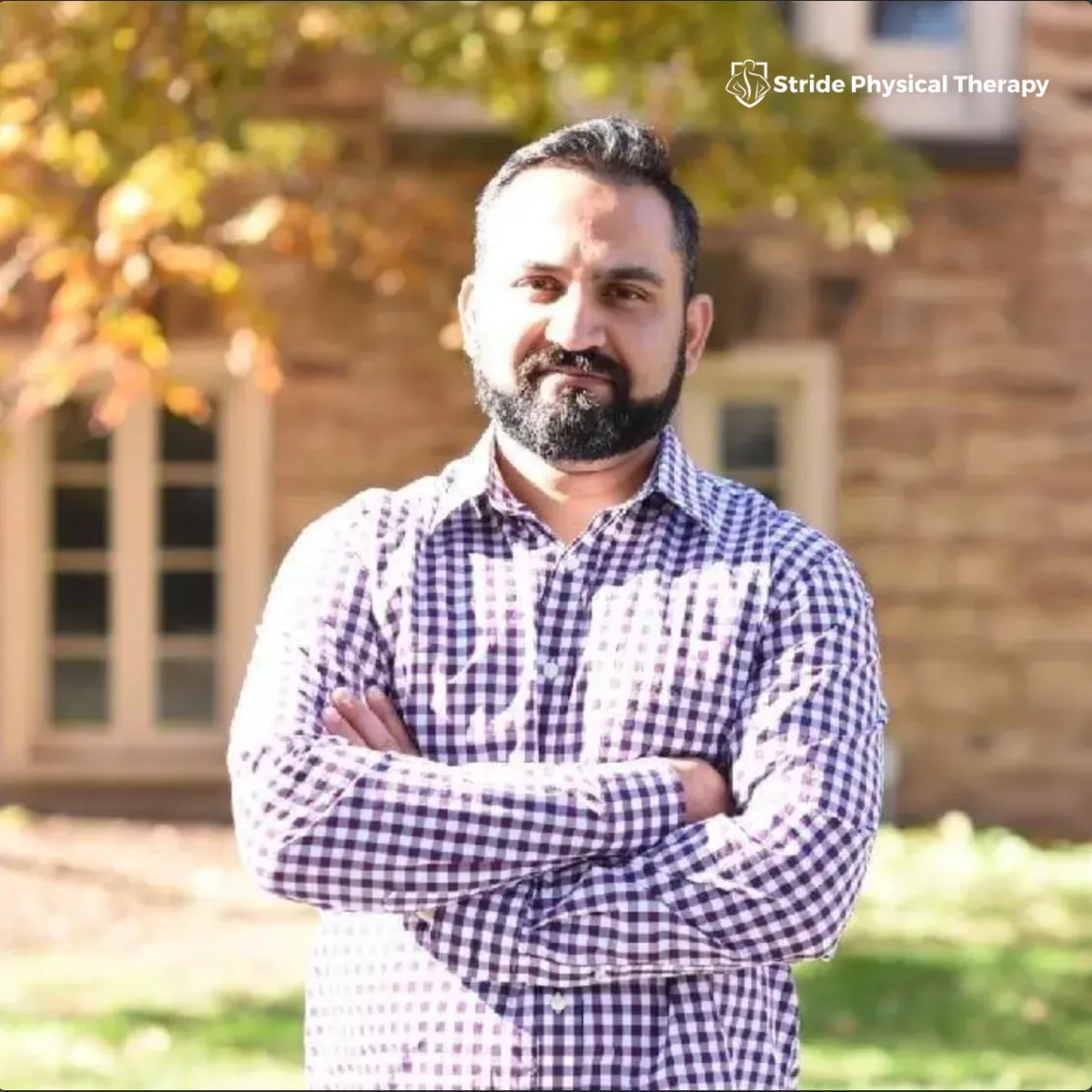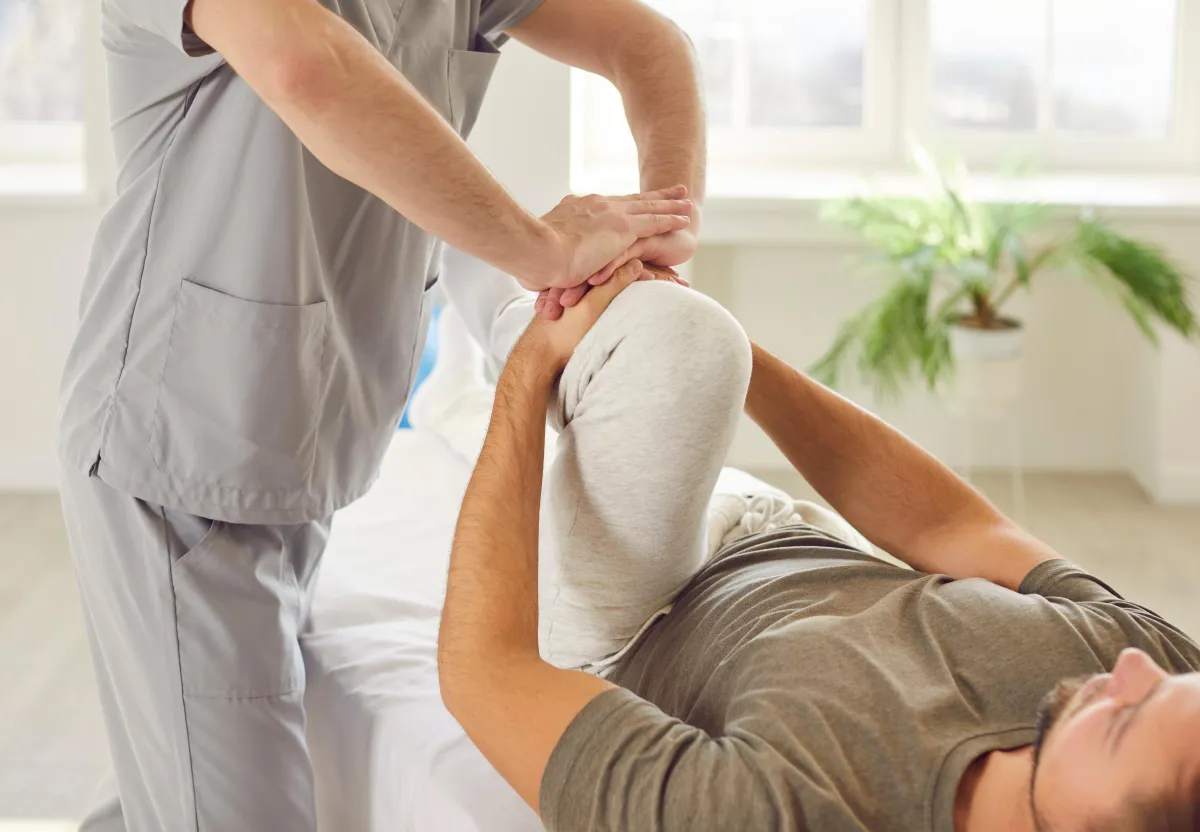Parkinson's disease makes everyday interactions challenging for those affected by this relentless condition that worsens over time. Our expert, board-certified neurologists and neurosurgeons, along with a specialized team in speech, occupational therapy, and nutrition, strive to enhance our patients' quality of life and autonomy. We are dedicated to guiding patients and their families every step of the way through their treatment journey.
Risk Factors for Parkinson’s Disease
Parkinson's disease arises from unknown origins, yet it may result from a mix of genetic aspects, like having relatives with the condition. It's more common in men and usually starts at age 60 or older. However, it can also occur before 40 in about 10% of instances.
Parkinson’s Disease Symptoms
Parkinson's disease symptoms vary from person to person; early signs might be subtle and overlooked. Initially, one might not swing their arms while walking or speak in a softer, mumbled tone. As Parkinson's progresses, since it's a disease that worsens with time, these symptoms will intensify.

Quick Links
FAQs
Signs and symptoms of Parkinson’s include:
1. Experience shakes and unintended shaking of arms, legs, and chin.
2. Feel muscle firmness and decelerated motions.
3. Notice a decrease in natural and reflexive movements.
4. Encounter balance issues and an unsteady gait.
5. Face feelings of depression and memory problems.
6. Observe alterations in speaking and writing abilities.
Parkinson's disease progresses in stages: mild, moderate, and advanced. Not everyone reaches the advanced stage. In the mild stage, symptoms are subtle and don’t interfere with daily activities, typically lasting 3-7 years. The moderate stage has noticeable effects, altering speech, making swallowing harder, increasing fall risk, and leading to small shuffling steps. In the advanced stage, treatments often don't work, and many require constant care, being confined to a bed or wheelchair.
Parkinson's disease develops through three stages: mild, moderate, and advanced, although not all patients experience the advanced phase. During the mild stage, which usually persists for 3-7 years, symptoms are minor and don't disrupt daily life. The moderate stage symptoms become more evident, affecting speech and swallowing, increasing the chance of falls, and causing small, shuffling steps. In the advanced stage, treatments tend to be ineffective and constant care may be necessary, often resulting in being bedridden or wheelchair-bound.
MEET YOUR RECOVERY TEAM

Kanwal Bhardwaj
PT, M.Sc.PT, CIMT, CMNT
Meet Kanwal Bhardwaj, PT, M.Sc.PT, CIMT, CMNT, the driving force behind Stride Physical Therapy in Freehold, NJ. With over 20 years of dedicated experience in the field, Kanwal brings a wealth of expertise and a passion for holistic healing to his practice. Kanwal's journey began with a Master of Science in Orthopedic Physical Therapy from Quinnipiac University in 2004. Over the years, he honed his skills and gained invaluable insights during 18 years of service in outpatient physical therapy offices. In 2014, fueled by a desire to deepen his understanding of patient care, he pursued a manual therapy certification (CIMT). This transformative experience allowed him to adopt a whole-body perspective, focusing on treating the root cause rather than just the symptoms...
At Stride Physical Therapy, we're dedicated to transforming lives. With a focus on the root cause of your condition, we're here to help you regain mobility and embrace an active lifestyle. What sets us apart? Our genuine passion for what we do. Let's stride towards a brighter tomorrow together.
Elevate Your Health with Our All-Inclusive Wellness Services!
Take one step closer to a pain-free life with Stride Physical Therapy! Discover medication and surgery-free solutions with our sessions.
Health Blog

Arthritis Pain Relief Without Medication
Arthritis pain in your knees or hips might make you want to reach for opioid painkillers. These drugs can offer short-term relief, but they're addictive and won't fix the real problem. Try a safe alternative: physical therapy. Get in touch with Stride Physical Therapy to see how a physical therapist can help ease your arthritis pain.
What is Arthritis?
Arthritis causes joint pain, tenderness, and swelling. It's a myth that it only affects old people; it can strike at any age. Treatment at Stride Physical Therapy can help get your joints moving well again and increase flexibility.
Signs of Arthritis
Arthritis symptoms can be managed with physical therapy. Common symptoms include:
Swollen Tissues: Arthritis causes tissue swelling near the affected joint, often making the area warm to the touch.
Grinding Sensation: Loss of cartilage leads to a grinding feeling as bones move against each other.
Lost Mobility: Arthritic joints can restrict your range of motion, making daily tasks difficult.
Joint Stiffness and Aches: Joints are especially stiff upon waking and may be sensitive or painful to touch.
Pain: Pain during or after physical movement is common in arthritic joints.
The Dangers of Opioids
Opioid prescriptions and overdose deaths have surged fourfold in 20 years, resulting in addiction, fatal overdoses, withdrawal, and depression. According to the CDC, opioid sales jumped 300% since 1999 with daily prescription opioid deaths over 40 in 2011. Physical therapy provides a safer option.
Physical Therapy: A Safer Alternative
If you’ve been diagnosed with arthritis, physical therapy can help you manage your symptoms without painkillers. During your first appointment at Stride Physical Therapy, you’ll discuss your medical history and symptoms. Your physical therapist will assess your strength, balance, and range of motion to create an optimal treatment plan.
Treatment Approaches
Manual Therapy: Therapeutic massage helps loosen muscles, increase range of motion, and relieve stiffness and discomfort in arthritic joints.
Body Mechanics: Learn how to perform daily activities with minimal strain on your joints to prevent the grinding sensation and slow arthritis progression.
Additional Treatments
Posture: Learn methods to optimize joint function and minimize pain, and how to use muscles and joints efficiently to relieve pressure.
Education: If needed, your therapist will teach you how to use assistive devices like canes or walkers properly.
Exercise and Weight Management: Your treatment plan may include exercises to strengthen muscles, support weight, and relieve joint strain. Aquatic exercises in a pool may be recommended for joint relief.
Contact Us Today
Physical therapy can help you manage arthritis pain without powerful opioids or other painkillers. Call Stride Physical Therapy today to schedule your first appointment with a licensed physical therapist. Start your journey to pain-free living and improved mobility.


